The woman who makes cannabis oil 'to help people'
- Published
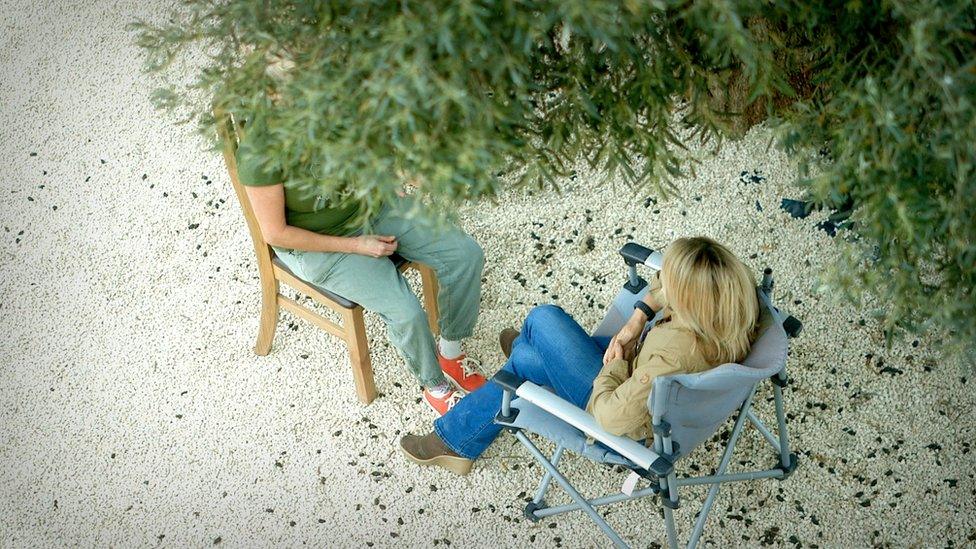
Marie, speaking to BBC journalist Samantha Poling, says she needs to remain anonymous because what she is doing is illegal
Marie is a British mother-of-four who helps run an illegal cannabis oil laboratory in the mountains of Spain.
What she is doing is against the law in both Spain and Britain, but Marie claims she is helping people with a range of conditions gain access to a medicinal drug they are currently unable to get on prescription.
Marie (not her real name) agreed to show me her entire operation on condition I kept her identity a secret. I asked her why she had to be anonymous.
"Because it's illegal," she said. "Because I don't want to be stopped from what I'm doing, because if I am then a lot of people are going to be left in the lurch."
The "people" she is referring to are generally sick - they are adults with fibromyalgia or diabetes, and children with epilepsy.
I flew to Spain to meet Marie after a tip-off from a family I met in Scotland.
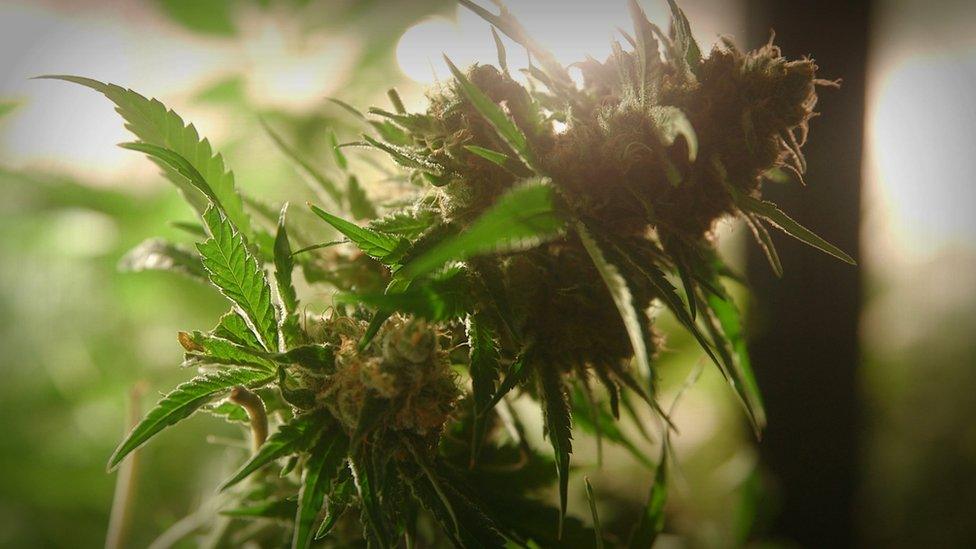
The THC compound is extracted from the cannabis bud
I was investigating medical cannabis and filming with families of children with drug-resistant epilepsy who were keen to try the medicine.
One family I met had been dosing their child with a strain which contained THC (tetrahydrocannabinol), the psychoactive part of the plant.
There is some evidence that cannabis medicines containing THC can help with epilepsy and reduce seizures. But there is also evidence it can cause seizures.
Legally, doctors can now prescribe cannabis oil products in the UK but they are refusing to, saying it needs to be trialled properly to show that it is safe and that it works.
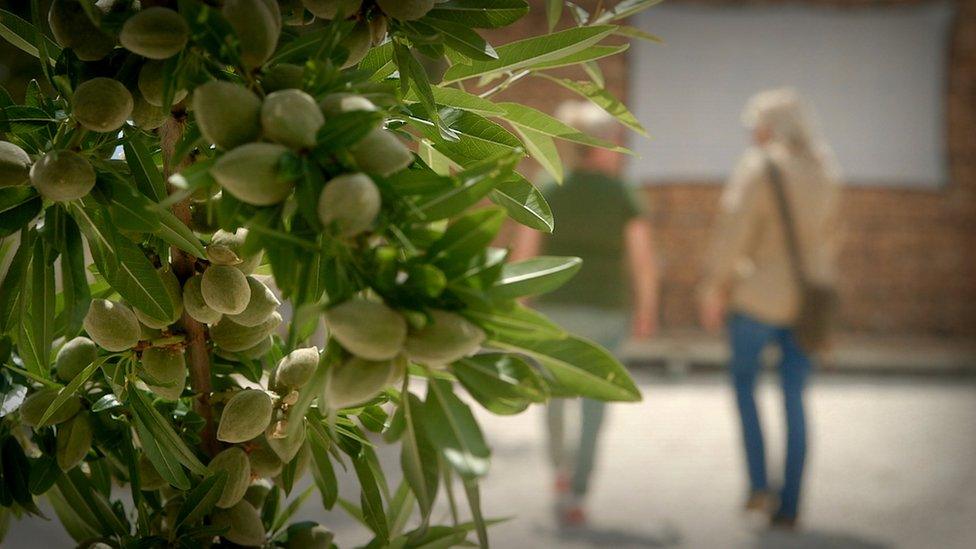
Marie and the location of her cannabis oil operation need to remain anonymous
In response, some people have been going to countries such as the Netherlands to get medical cannabis on prescription while others have turned to the black market.
Experts warn this is a bad idea because their products are not pharmaceutical grade.
They say there can be a "very real danger" because users do not know exactly what is in the dealer's products.
The family I met in Scotland felt they had a black market dealer who actually wanted to help people - that was Marie.
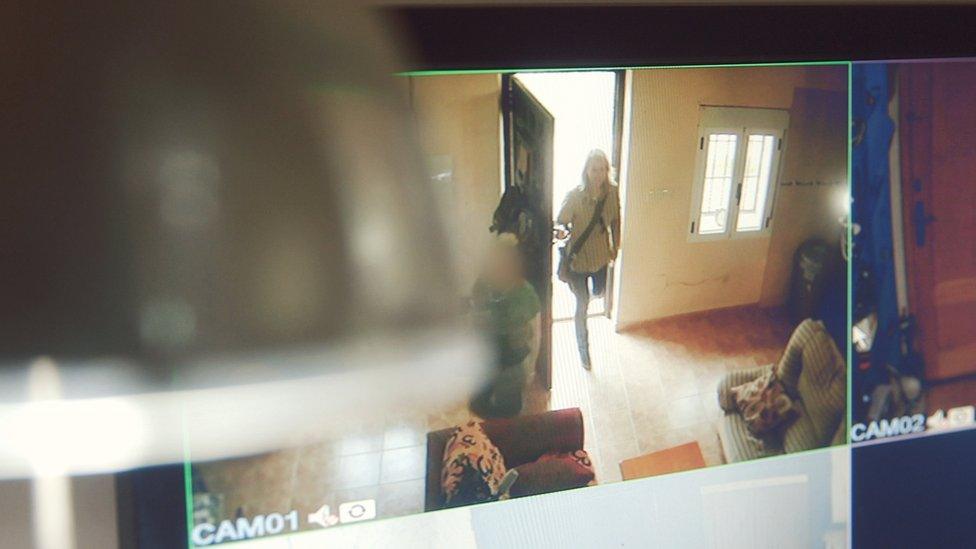
CCTV cameras are in operation to protect the site
Marie told me she makes the oils because she had used cannabis herself for a medical condition and was sick of buying from street dealers.
"It was awful," she says. "But it was out of necessity, not because I'm a hardened criminal. I kept getting ripped off by them and so I decided to grow it myself."
Her illicit activities soon brought the attention of the police in Britain. By then, she had met a man and fallen in love. It took her to Spain.
She says: "I made a pact there and then that I would help other people so that they wouldn't be ripped off as I had been. And that's how it all started."
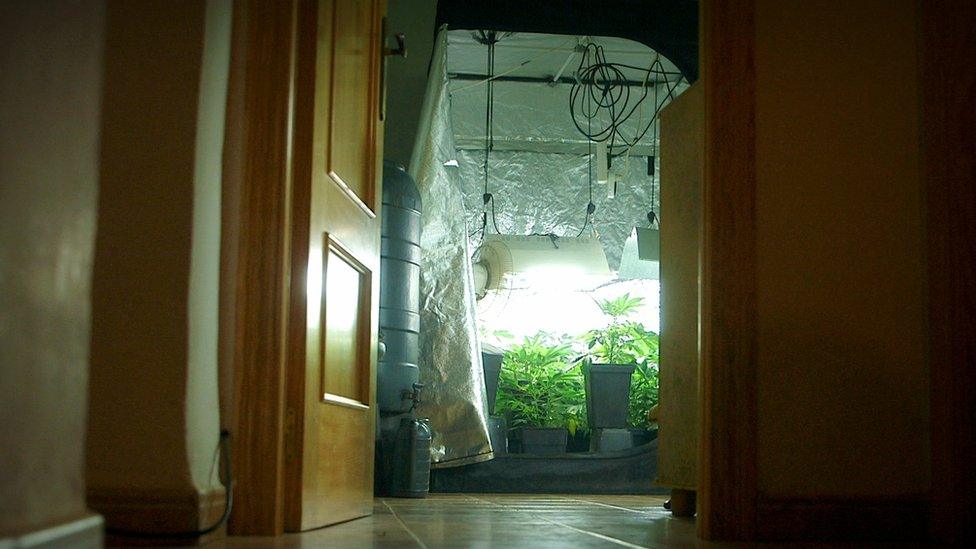
The cannabis is grown in a small white-washed building up a narrow lane
I met Marie in a bar west of Alicante, then she drove me into the mountains along dusty tracks lined with almond trees.
The first stop is where they grow the plants. A small white-washed building up a narrow lane. There are bars on the windows and doors and CCTV cameras. Other criminals sometimes come and steal the product, she tells me.
The door does not open far before we are hit with the sweet, pungent and unmistakeable aroma of cannabis.
We go from room to room. The plants are in various stages of growth. Once the perfect size and age, the buds will be picked and dried and transported to the lab, which is where she takes me next.
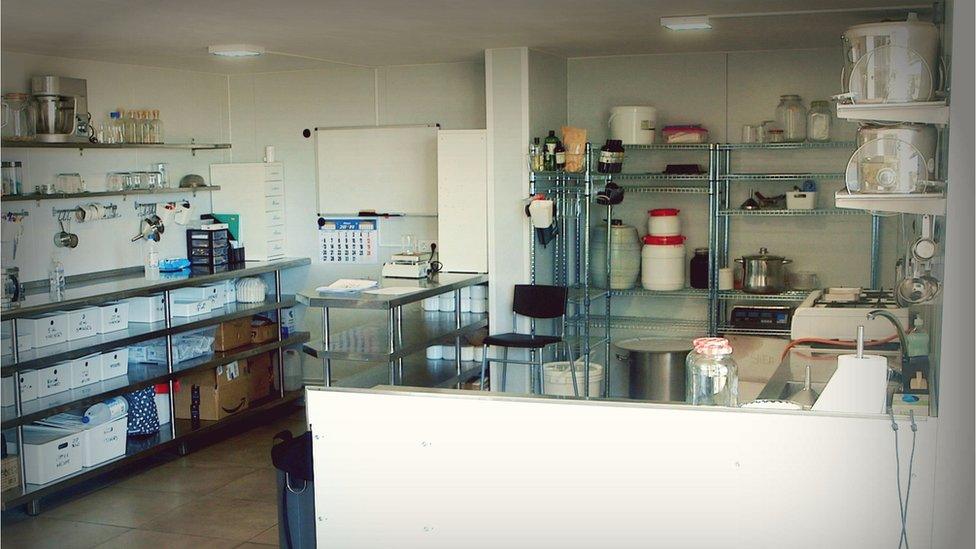
The laboratory where Marie makes the cannabis oils
We head north, back through the fields of almonds and towards the hills. Then we lurch along the final stretch of a pot-holed dusty track and stop outside a small crop of outbuildings in the middle of nowhere. There is the obligatory metal fencing, the big barking guard dog and cameras - but once we are through the gates, everything changes.
There, sitting incongruously in the arid Spanish plains, is a laboratory.
Once inside, the air conditioning does much to dampen the heat, but the pungent aroma of cannabis remains.
Marie tells me she is going to make up some oil, so I can see how easy the process is. I'm not going to detail it here, but she is right - the process does look pretty simple.
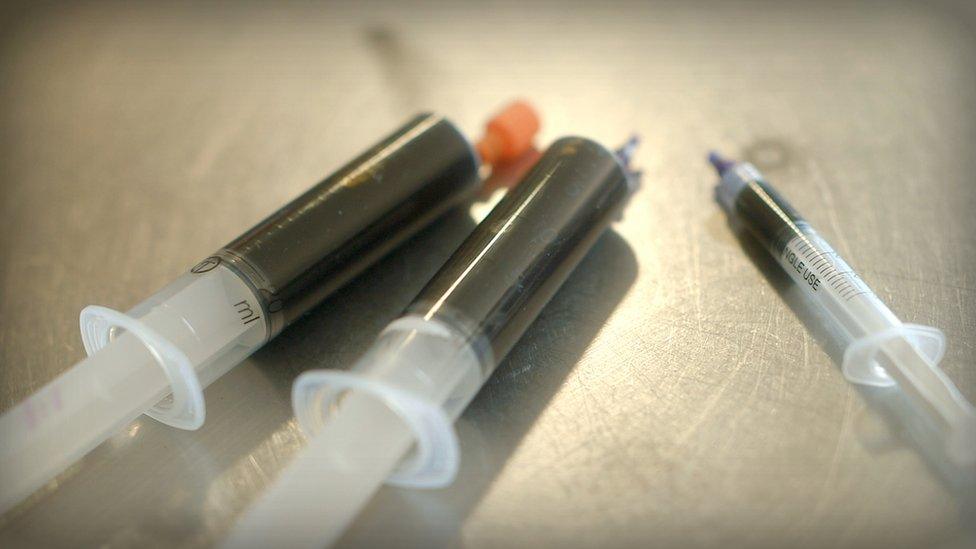
The larger syringes sell for hundreds of euros
The larger syringes containing the oil can sell for several hundred euros but Marie tells me that if families really need it and do not have the money, she will give it to them for much less, sometimes for nothing.
Marie says this is part of her idea of "paying it forward", but what she really wants is to teach people how to do it themselves.
She says: "I want people to be self-sufficient so that we don't have to break the law on their behalf.
"Or I want the government in the UK to pull their fingers out and actually implement a system quickly. There isn't time for people to be waiting with dying children.
"I want them (the government) to implement a system quickly whereby people have access to quality medication, that they know what's in it and dosing programmes."
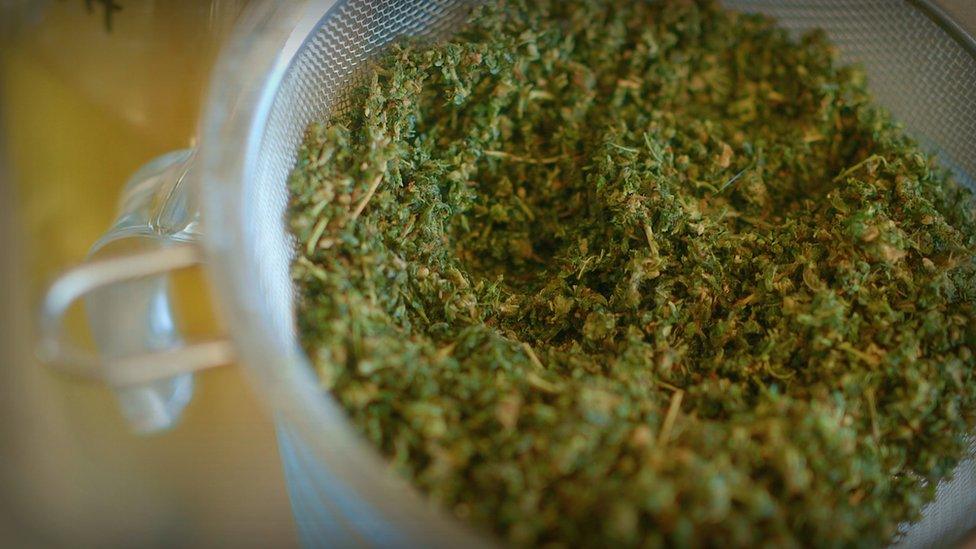
Marie says there has been an increase in people asking for THC meds since the UK government changed the rules on prescriptions last year.
She says people think that if the government is saying legal medical cannabis is OK, then it can't be as bad as they used to say it was.
However, Marie also says that she wants to stop running her cannabis oil operation.
"I don't want the stress, I don't want the responsibility, I don't want people calling me at two o'clock in the morning because they've run out of oil," she said.
"It's just way too much responsibility. I won't have people crying at me because their child's had 40 seizures."
'No control'
Marie says she has dozens of customers in the UK. Does she worry she is selling to desperate people, often with very sick children?
She admits that she has "no control" over what happens to the product once she sends it to people.
"We do the best that we can to provide a quality product," she says.
The oils are sent diluted, she says, with recommendations to be very careful with dosing protocols.
"But we try not to take too much part of what goes on from there because I don't want that responsibility," she says.
"My bit is to help them, but I would rather parents produce their own plants and made their own oil under guidance rather than me having to be part of that process."

Previous Disclosure investigations include: